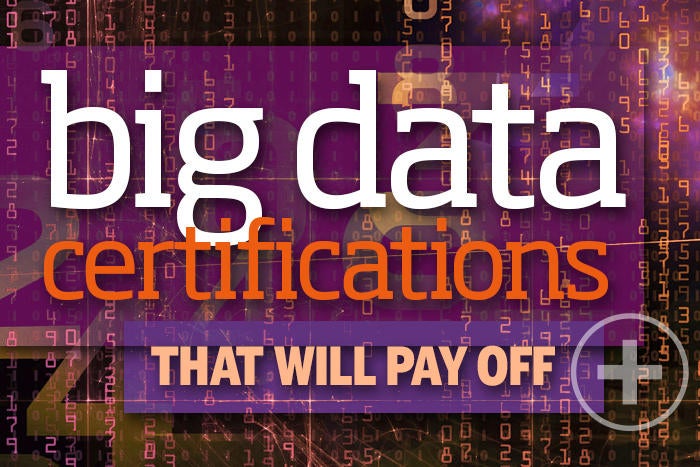Get Your Enterprise Ready for 5G

5G is an opportunity to re-imagine your business and to think about what you could do in your company if you weren't constrained by limited bandwidth and slow data transfer speeds. In healthcare, the elimination of communications constraints could mean a broader ability to deploy telemedicine and telesurgery to remote areas. In manufacturing, unleashing the potential of communications could bring an endless opportunity to manage all types of Internet of Things (IoT) appliances and robotics in factories around the world. In cities, unbridled communications could deliver limitless ways to manage traffic grids and fleets of autonomous vehicles. However, in other business cases, what you're already doing today with 4G, or even with 2G or 0G, might be enough. The discussion about present, short-term future and long-term business directions, and the communications that are needed to support them, should occupy the CIO, other C-level executives, corporate technology experts and boards of directors.
Cyber-Physical Systems – The new and emerging systems of intelligence

With edge devices – pieces of hardware that control data flow at the boundary between two networks – becoming more powerful, miniaturised and inexpensive, there is an opportunity to bring AI, machine learning (ML) and real-time decision making closer to where data is produced. This involves building geo-distributed models that are privacy-aware and adapting decision-making algorithms based on context. Edge computing systems will form the basis for the smooth functioning of CPS, especially in time-sensitive tasks where even milliseconds matter, such as remote robotic surgeries or self-driving cars. They provide the much-needed, real-time insights to these systems so that they can operate and adapt in real-time. The Internet of Things (IoT) and smart devices have become an inseparable part of our everyday lives and many physical devices and everyday objects are now connected. In fact, according to IHS Markit there will be more than 125 billion connected devices globally by 2030. However, as an increasing number of devices is integrated into enterprise networks, it is important to ensure that the existing systems are ready to yield the expected benefits and minimise risk.
The top 9 big data and data analytics certifications for 2020

Data and big data analytics are the lifeblood of any successful business. Getting the technology right can be challenging but building the right team with the right skills to undertake data initiatives can be even harder — a challenge reflected in the rising demand for big data and analytics skills and certifications. If you're looking to get an edge on a data analytics career, certification is a great option. ... The number of data analytics certs is expanding rapidly. ... The Certification of Professional Achievement in Data Sciences is a non-degree program intended to develop facility with foundational data science skills. The program consists of four courses: Algorithms for Data Science, Probability & Statistics, Machine Learning for Data Science, and Exploratory Data Analysis and Visualization. ... The Certified Analytics Professional (CAP) credential is a general analytics certification that certifies end-to-end understanding of the analytics process, from framing business and analytic problems to acquiring data, methodology, model building, deployment and model lifecycle management. It requires completion of the CAP exam and adherence to the CAP Code of Ethics.
Financial Advisors Hate Bitcoin. Their Reasons Will Drive You Crazy
In the U.S., all financial advisors have fiduciary duty. This means they have to manage your money in a way that benefits you. If they don’t, you can sue them. You can do what you want with your own money. Buy all the bitcoin you want. Cow pies, lawn darts, options, credit default swaps, silver dollars, hammers, whatever you want to buy, no matter how risky or useless, you go for it. When you give money to financial advisors, they have to follow certain rules. They can’t mess around with crazy stock tips or risky off-shore investment schemes. ... In fact, crime is the number one reason 75 percent of all investors say they avoid bitcoin. Most people worry about getting hacked or think somebody will use bitcoin for terrorism or illegal activities. On top of that (and maybe because of it), most advisors don’t know how bitcoin works. Cryptocurrency isn’t covered in their professional certifications. ... Bitcoin has no central issuer, no government, and no business managing its use. Bitcoin transactions are pseudonymous, peer-to-peer, and settled instantly.
Four priorities for the evolution of IT in 2020

IT efficiency is crucial to the success of digital transformation initiatives, and there is increased pressure on IT departments to deliver more, faster. However, IT can no longer keep up with the demands of the business; little over a third (36 per cent) of IT professionals were actually able to deliver all projects asked of them last year. In order to reduce this growing IT delivery gap, we’ll see IT move away from trying to deliver all IT projects themselves in 2020. The IT team’s role will evolve to changing, operating and securing core IT assets along with building and managing reusable APIs, exposing the functionality within the core IT assets that the rest of the business can consume to create the solutions they need. Essentially, IT begins to create new building blocks (APIs) that can empower both the technical and the broader lines of business users to innovate and build new technology solutions without compromising the core IT estate of the business. With API-led connectivity and organisations educating teams on the power of integration, IT will empower companies to digitally transform and innovate faster than ever before, shifting from being an “all doing” to an “enabling” organisation and avoiding being a constraint to business expansion.
Visa's plan against Magecart attacks: Devalue and disrupt

Visa's plan to devalue payment card data involves the rollout of new technologies like the Visa Token Service and Click To Pay systems. The Visa Token Service is a new payment mechanic through which payment card numbers and details are replaced by a token. This token validates the transaction against Visa's servers, but its useless to attackers as it doesn't contain any data cybercriminals can use to sell or clone cards. This novel tokenization system will be coupled with the new Click To Pay technology that Visa and fellow card providers have been working on for the past few few years, and which they recently began rolling out across the US. With Click To Pay, multiple card providers have banded together to create a common "Click to Pay" button that vendors can add to their online stores. Users only have to enter their card details once, and then click the button to buy products across the internet, without having to re-enter card details on each store. Since users don't have to enter card details on online stores, there's nothing Magecart hackers can steal. Both technologies were created to simplify online shopping, but they both happened to come along at the right time to help fight off Magecart attacks.
Microsoft: Application Inspector is now open source, so use it to test code security

The static source-code analyzer aims to help developers handle potential security issues that arise through code reuse when incorporating open-source components, such as software libraries, into a project. "Reuse has great benefits, including time to market, quality, and interoperability, but sometimes brings the cost of hidden complexity and risk," write Guy Acosta and Michael Scovetta, members of Microsoft's Customer Security and Trust team. "You trust your engineering team, but the code they write often accounts for only a tiny fraction of the entire application. How well do you understand what all those external software components actually do?" As they note, modern web applications often have hundreds of third-party components that contain tens of thousands of lines of code, which were written by thousands of contributors. And typically developers who use those components rely on the author's description, which Microsoft argues is not reliable or enough to meet Microsoft's responsibility for shipping secure code, which includes external components.
Natural disasters are increasing in frequency and ferocity. Here's how AI can come to the rescue
Once an advancing cyclone or hurricane is identified, for example, geo-spatial, weather and previous disaster data could be used to predict how many people will be displaced from their homes and where they will likely move. Such insights could help emergency personnel identify how much aid (water, food, medical care) will be needed and where to send it. AI algorithms could instantaneously assess flooding, building and road damage based on satellite images and weather forecasts, allowing rescuers to distribute emergency aid more effectively and identify those still in danger and isolated from escape routes. McKinsey’s Noble Intelligence is just one example of an initiative trying to harness AI’s potential to support humanitarian causes. For instance, the team is developing an algorithm that will reduce the time it takes to assess damage to buildings such as schools from weeks to minutes, using a combination of satellite, geo-spatial, weather and other data.
Does the World Need a Cryptocurrency Robo Advisor?

Robo Advisors as a service has been used on a global scale. Though, there is definitely a different scene running in different parts of the world, for instance comparing the US market with Europe. The US retail market has shown much more interest and trust in using these computer programs to manage their money. This has alone made the US the source of innovation for Robo Advisors considering the competition between some heavyweight financial institutions trying to take a bite from the market share such as Vanguard or Charles Schwab and very bright startups such as Betterment, Wealthfront and Acorns. ... One challenge that remains for the market and the ETP providers is to keep liquidity for the indices they launch. Market liquidity across Cryptocurrencies, especially alternative coins (all non-bitcoin coins). There are specialized parties, called market makers using sophisticated tools for providing offers for both sides of order book. The tool, called also market making bot makes sure make sure such coins or indices have sufficient liquidity to attract investors or financial advisors.
Bipartisan group of senators introduces legislation to boost state cybersecurity leadership
In introducing the legislation, Hassan highlighted the ongoing nationwide ransomware attacks on cities and government entities. These types of attacks, which recently crippled the government of New Orleans, involve an individual or group locking up a system and demanding a ransom to give the user access again. “Cyberattacks can be devastating for communities across our country, from ransomware attacks that can block access to school or medical records to cyberattacks that can shut down electrical grids or banking services,” Hassan said in a statement. “The federal government needs to do more to ensure that state and local entities have the resources and training that they need to prevent and respond to cyberattacks.” Hassan added that the new bill “would take a big step forward in improving communication between the federal government, states, and localities, as well as strengthening cybersecurity preparedness in communities across the country.”
Quote for the day:
"The led must not be compelled; they must be able to choose their own leader." -- Albert Einstein
No comments:
Post a Comment